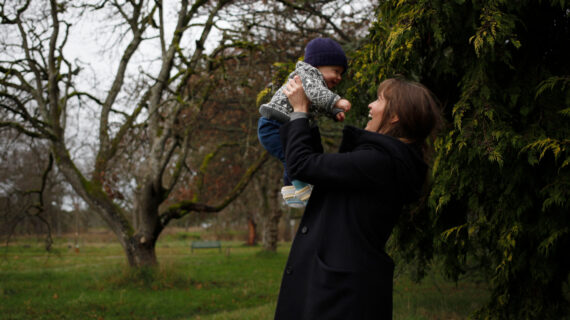There’s been a lot of social media attention in recent days on new polling that shows the Pierre Poilievre-led Conservative Party is now the preferred political choice for young Canadian voters.
A Mainstreet Research poll from September 22 found that 44 percent of younger voters (ages 18 to 34) favoured the Conservatives. A more recent poll from the Angus Reid Institute similarly finds that nearly half of 18 to 34-year-old males say they would vote Conservative.
These results possibly signal a significant change in the voting patterns of this younger demographic. They stand in contrast, for instance, with polling numbers from early 2021 when the Conservative Party was in third place among these voters with just 22 percent.
Although it’s too early to tell whether these political trends are durable, one possible indicator may be the growing generational change within the Conservative parliamentary caucus itself. The past few elections have caused it to undergo something of a youth movement that’s gone mostly underreported.
A study commissioned in 2016 following the 2015 election analyzed the average age of the different parliamentary parties. It found that the average age of the then-99 Conservative MPs was 52. By contrast, the winning Liberal caucus had an average age of 50, while the NDP MPs were on average 49 years and six months old.
This reinforced a common perception that the Conservative Party was too old, too white, and too out of touch to reflect the concerns and ambitions of modern Canada. Yet, at least with regards to age, Conservative MP Adam Chambers has said that is no longer the case.
Today’s Conservative parliamentary caucus is on the whole younger than it was back in 2015. In fact, the average Conservative MP is now younger than his or her Liberal colleague.
The ages of the current crop of MPs in the House of Commons, elected or re-elected in 2021, are not readily available on demand from a single source. However, available sources show that the average age of current Conservative MPs is about 47 years old, while the average of Liberal MPs remains around 50.
While 47 may not be the new 30, it is noticeably younger than the set of Conservative MPs elected under Stephen Harper. Some of the most high-profile Conservative MPs elected since then are Millennials or part of Generation Z.
“It’s certainly been great to see folks like Melissa Lantsman (38), Eric Duncan (34), Eric Melillo (24), (and) Jake Stewart (44),” says Raquel Dancho, the 32-year-old Conservative MP for Kildonan-St. Paul. “There’s just so many people who are under 45, that are full of energy, and really focused on the future.”
Dancho, Lantsman, Duncan, Melillo, and Stewart were elected in the 2019 and 2021 federal elections. They’ve all subsequently served in the shadow cabinets of former leader Erin O’Toole and former interim leader Candice Bergen.
Dancho herself defeated the 66-year-old Liberal incumbent in Kildonan-St. Paul in the 2019 election. Lantsman succeeded Peter Kent, a 79-year-old former cabinet minister in Stephen Harper’s government, as the Conservative candidate for Thornhill in the 2021 election.
While Poilievre has yet to unveil his own shadow cabinet, he has already named Lantsman, Duncan, Stewart, and Chris Warkentin, 43, to his leadership team in the House of Commons.
The most recent shadow cabinet is noticeably younger than the Trudeau government’s own cabinet. There are 10 Conservative MPs aged 40 or under in the shadow cabinet, compared to just three in the Liberal cabinet.
Poilievre himself is 43 years old, while Prime Minister Justin Trudeau is now 50. Trudeau’s decisive victory in the 2015 election has been credited to his party’s ability to attract a substantial youth vote. Dancho says Millennials and other younger voters have since become disenchanted with the Trudeau government, as housing prices, inflation, and crime have increased dramatically.
“Millennials are certainly more savvy in seeing that their lives are not getting better under Liberal policies,” says Dancho.
During his successful party leadership campaign, Poilievre heavily emphasized the concerns of younger Canadians including housing affordability challenges across the country. A Deloitte survey from 2019 found Millennials and Gen Z to be disproportionately pessimistic, and a 2022 Leger poll found those same cohorts to be afraid of the future.
“We’re really focused on speaking to the cost of living and that, perhaps, is a bit of change from the Conservative Party of the past,” says Dancho.
Dancho says the inability to afford to buy a home is made more frustrating by the fact that the younger generations are better educated than their parents, even though Canada was less-advanced at the time.
Poilievre has blamed “gatekeepers” in cities like Vancouver, for protecting wealthy property investors over Canadian families. For solutions, he has pledged to make federal transfers to cities conditional on boosting the housing supply and streamlining construction permits, in addition to supporting higher-density zoning. He has also proposed requiring municipalities to build affordable housing around transit hubs.
Affordability was one of the top issues animating the 2021 federal election and is poised to loom large in the new parliamentary sitting.
“I think we are the only party that’s really speaking to and addressing the issues that Millennials, and those younger, are facing,” says Dancho.




